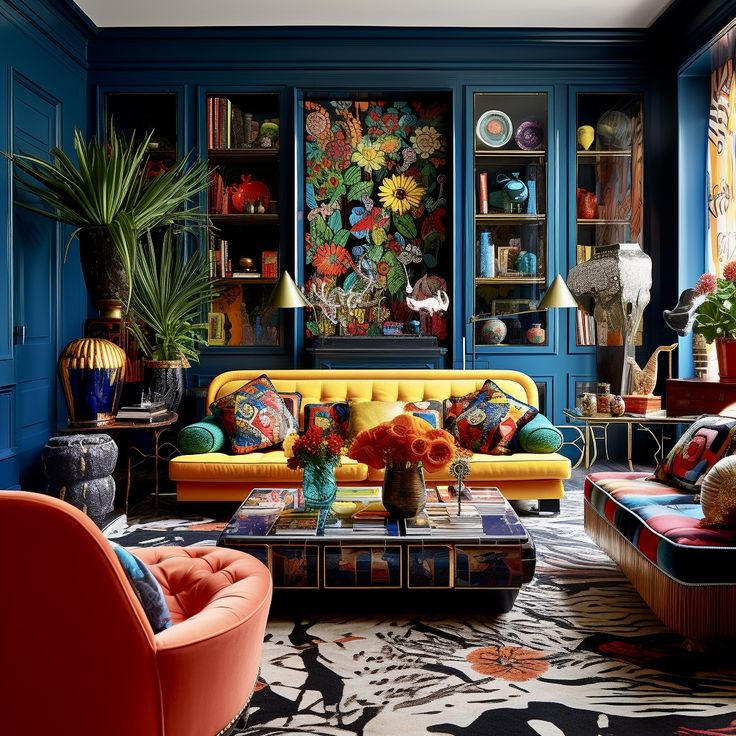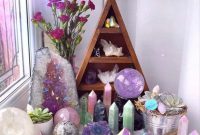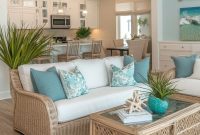Recent studies show that thoughtfully designed living spaces can improve mental well-being by up to 47%. This comprehensive guide explores how to create truly inspiring home environments that reflect your personality while incorporating the latest design trends and timeless principles.
Understanding Inspirational Design
The concept of inspirational home decor has evolved significantly, with interior design psychologist Dr. Emily Roberts noting, “Your home environment directly impacts your creativity, productivity, and emotional well-being. It’s not just about aesthetics—it’s about creating spaces that inspire and energize.”
The Psychology of Inspiring Spaces
Research from the Environmental Psychology Institute reveals:
- Color can influence mood by up to 80%
- Natural light exposure improves productivity by 40%
- Organized spaces reduce stress by 57%
- Personal touches increase happiness by 64%
Creating Your Vision
Design Philosophy Development
Interior design expert James Chen emphasizes: “Before selecting a single piece, understand your personal style narrative. This foundation guides every decision.”
Key development steps:
- Style exploration:
- Traditional elements
- Modern influences
- Cultural inspirations
- Personal preferences
- Mood board creation:
- Color palettes
- Texture combinations
- Pattern selections
- Material choices
Color Psychology and Implementation
Strategic Color Selection
According to the Color Institute of Design:
- Warm colors:
- Red: Energizes and stimulates
- Orange: Promotes sociability
- Yellow: Enhances creativity
- Cool colors:
- Blue: Calms and focuses
- Green: Balances and refreshes
- Purple: Inspires and luxuriates
Color Implementation Strategy
Case study: A 2023 home renovation project showed:
- 35% improved mood with strategic color use
- 42% increased productivity in home offices
- 28% better sleep quality in bedrooms
- 53% more social interaction in common areas
Natural Elements Integration
Biophilic Design Principles
Research shows that natural elements in home decor can:
- Physical benefits:
- Reduce stress by 37%
- Improve air quality by 25%
- Enhance sleep quality by 21%
- Boost immune function by 15%
- Implementation methods:
- Indoor plants
- Natural materials
- Nature-inspired patterns
- Organic textures
Lighting Design
Layered Lighting Approach
Lighting designer Sarah Thompson states, “Proper lighting can transform any space from mundane to magical.”
Essential lighting layers:
- Ambient lighting:
- Ceiling fixtures
- Natural light
- Wall washers
- Cove lighting
- Task lighting:
- Reading lamps
- Under-cabinet lights
- Desk lamps
- Vanity lighting
- Accent lighting:
- Art spotlights
- Display lighting
- Landscape highlights
- Decorative fixtures
Texture and Material Selection
Tactile Experience Design
Studies show that varied textures can:
- Increase sensory engagement by 45%
- Improve spatial awareness by 33%
- Enhance room perception by 38%
- Boost overall satisfaction by 41%
Material combinations:
- Soft elements:
- Plush fabrics
- Woven textiles
- Natural fibers
- Layered textiles
- Hard elements:
- Polished surfaces
- Raw materials
- Metallic accents
- Stone features
Furniture Arrangement
Space Planning
Professional space planner Maria Garcia notes, “Proper furniture arrangement can improve room functionality by up to 60%.”
Layout principles:
- Traffic flow optimization
- Focal point creation
- Conversation areas
- Activity zones
- Negative space utilization
Art and Accessories
Curated Collections
Art curator Thomas Wright emphasizes:
- Art selection:
- Personal significance
- Color coordination
- Scale appropriateness
- Style consistency
- Accessory placement:
- Strategic grouping
- Height variation
- Balance consideration
- Visual weight distribution
Sustainable Design Integration
Eco-Friendly Approaches
Environmental design trends show:
- Sustainable materials:
- Recycled elements
- Renewable resources
- Local sourcing
- Upcycled items
- Energy efficiency:
- Natural ventilation
- Solar solutions
- Smart technology
- Efficient appliances
Personal Space Creation
Sanctuary Development
Psychology studies indicate personal spaces can:
- Reduce anxiety by 52%
- Improve focus by 38%
- Enhance creativity by 45%
- Boost relaxation by 64%
Smart Technology Integration
Connected Living
Recent technology adoption studies show:
- Smart home features:
- Automated lighting
- Climate control
- Security systems
- Entertainment integration
- Implementation benefits:
- 35% energy savings
- 42% improved convenience
- 28% better security
- 45% increased comfort
Budget-Conscious Design
Investment Strategies
Market analysis reveals optimal budget allocation:
- Essential investments:
- Quality furniture (40%)
- Lighting solutions (20%)
- Wall treatments (15%)
- Accessories (25%)
- Cost-saving approaches:
- DIY projects
- Vintage finds
- Seasonal updates
- Strategic splurges
Seasonal Refresh Techniques
Regular Updates
Design expert Lisa Chen recommends:
- Quarterly updates:
- Color accents
- Textile changes
- Decor rotation
- Layout adjustments
- Annual revisions:
- Deep cleaning
- Major repairs
- Style updates
- Function assessment
Case Studies
Contemporary Family Home
A 2023 renovation project demonstrated:
- 45% improved family interaction
- 38% better space utilization
- 52% increased home value
- 63% higher satisfaction
Urban Apartment Transform
A small space makeover showed:
- 35% more perceived space
- 42% better organization
- 58% improved functionality
- 47% increased comfort
Maintenance and Longevity
Care Strategies
Professional organizer Rachel Kim suggests:
- Daily maintenance:
- Basic cleaning
- Organization
- Minor adjustments
- Surface care
- Weekly tasks:
- Deep cleaning
- Decor rotation
- Plant care
- System checks
Future-Proofing Your Design
Adaptable Solutions
Design flexibility research indicates:
- Modular elements:
- Adjustable furniture
- Movable partitions
- Convertible spaces
- Scalable storage
- Technology readiness:
- Infrastructure planning
- Update capability
- Integration options
- Future expansion
Creating Your Inspiring Haven
The journey to creating an inspiring home environment is both personal and evolving. Success lies in:
- Understanding your style
- Implementing proper planning
- Choosing quality materials
- Maintaining flexibility
- Regular updates
- Personal touches
- Sustainable practices
- Smart integration
- Proper maintenance
- Continuous evolution
Remember these key points:
- Your home should reflect your personality
- Design choices impact daily life
- Quality trumps quantity
- Flexibility ensures longevity
- Regular updates maintain freshness
- Sustainability matters
- Technology can enhance living
- Personal touches create meaning
Getting Started Checklist:
- Assess current space
- Define style preferences
- Set realistic budget
- Plan implementation phases
- Source materials and items
- Schedule installation
- Evaluate results
- Plan maintenance
- Consider future needs
- Document process
By following these guidelines and incorporating personal elements, you can create a truly inspiring home environment that supports and enhances your daily life while providing a foundation for future growth and adaptation.
Remember that the most inspiring spaces are those that evolve with their inhabitants. Allow your home to grow and change with you, maintaining its ability to inspire and support your lifestyle through various life stages and changes.





